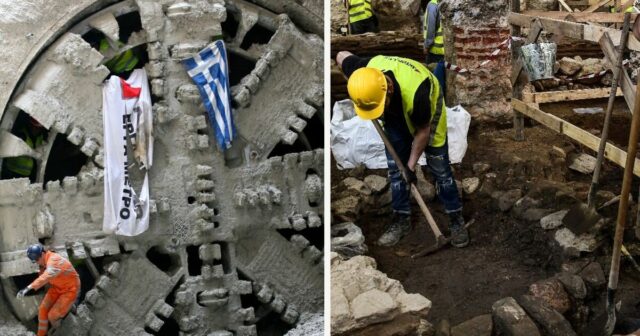A Herculean underground train project costing an estimated £2.9 billion in an ancient European city is finally set to be completed a decade later than planned. Greece’s Thessaloniki Metro was originally due to be completed in 2012 providing rapid transport to over a million people in the region, but a series of significant archaeological discoveries set back the timeline to this year.
Founded in 315 BC, the city has orgins linked to Alexander the Great and during building of the new rail system archaeologists found evidence of buildings from more than 1,000 years ago.
The construction of the underground railway network, which has more nearly 10 miles of tunnels, revealed significant evidence of Thessaloniki’s urban life from the 4th to 9th centuries.
A monumental gate and a marble paved avenue 250 feet in length have all been unearthed providing a unique insight into everyday life in early Byzantine Thessaloniki.
Fast-forward to 2024 and modern Greece is forging ahead with the metro which the Greek minister for Infrastructure and Transport, Christos Staikouras, said would be ready in months.
During an open day at the project he said: “Our commitment remains unchanged. Thessaloniki will have an operational metro in the second half of 2024.
“We are very near the completion of our target. This means that the justifiable doubt about the timely completion of the projects is dropping. As political leaders, we are committed that all projects in Thessaloniki we will be on time.”
Residents of Thessaloniki have been waiting a long time for their new metro which was originally due to open in 2012.
According to the Greek Reporter, construction began in 2006, but progress was delayed due to a series of important archaeological discoveries in the metro tunnels.
As well as the metro trains, the network will also be bolstered by five bus lines, a planned hire of 150 bus drivers, and 110 electric buses.





